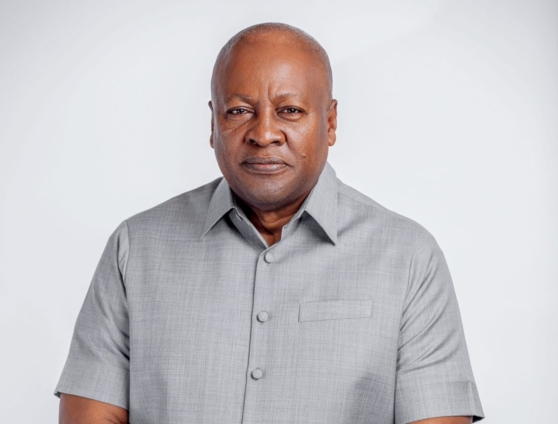Mahama’s ‘Operation Recover All Loot’: A bold step toward justice and accountability in Ghana
John Dramani Mahama’s return to the presidency after the 2024 general elections has brought with it bold and ambitious promises, chief among them being the initiative known as “Operation Recover All Loot” (ORAL).
This programme aims to tackle allegations of corruption, procurement violations, and the questionable sale of state assets that have been linked to the New Patriotic Party (NPP) government.
For many Ghanaians, ORAL represents more than a political pledge—it is seen as an essential step toward restoring justice, accountability, and trust in governance.
Over the years, the NPP administration has been embroiled in allegations of corruption and mismanagement. Claims of inflated sole-sourced contracts and the sale of state assets at undervalued prices have triggered widespread public outrage.
Many citizens are demanding that the culprits behind such actions face consequences, emphasizing that accountability is vital for retrieving lost resources and rebuilding trust in the country’s leadership.
Mahama’s ORAL initiative is a cornerstone of his 120-Day Social Contract Agenda, which prioritizes eradicating corruption, recovering looted state resources, and promoting accountability within the public sector.
Key Steps of “Operation Recover All Loot”
Public Participation
Mahama has formed a five-member committee to collect and investigate public reports of suspected corruption. This platform empowers citizens to actively participate in uncovering hidden cases of malfeasance, creating a sense of collective responsibility in the fight against corruption.
Audits and Investigations
The initiative includes comprehensive audits of contracts awarded during the NPP administration to identify procurement law breaches and financial misconduct. These audits are intended to expose irregularities and hold responsible individuals accountable.
Reclaiming State Assets
Allegations regarding the sale of state properties to politically connected individuals will be addressed through renegotiations or legal action. This approach aims to reclaim assets for the benefit of the nation.
Strengthening Institutions
Mahama’s government plans to enhance the capacity of key anti-corruption institutions like the Office of the Special Prosecutor (OSP) and the Economic and Organized Crime Office (EOCO). By equipping these bodies with greater resources and independence, the administration aims to ensure more effective investigations and prosecutions.
Transparency and Accountability
Regular updates on the progress of investigations and asset recovery efforts will be shared with the public to maintain trust in the initiative. This transparency aims to demonstrate the government’s commitment to its promises and foster widespread support for its actions.
Challenges and Opportunities
The push for accountability has resonated strongly with the Ghanaian public, creating both opportunities and challenges. While the demand for justice underscores public support for ORAL, it also places immense pressure on Mahama’s administration to produce swift and tangible results.
Critics from the NPP may dismiss the initiative as a politically motivated vendetta, potentially deepening polarization. Additionally, the legal complexities of reversing contracts, recovering assets, and addressing bureaucratic challenges could slow progress.
Potential Impact
If successfully implemented, ORAL could be a transformative initiative for Ghana. Recovering stolen assets would strengthen national finances, allowing critical investments in infrastructure, healthcare, and education. Moreover, delivering justice for acts of corruption would set a powerful precedent, deterring future misconduct and fostering a culture of transparency.
However, failure to deliver results could erode public trust further, as many Ghanaians are weary of unfulfilled political promises.
A Path to a New Era
Mahama’s “Operation Recover All Loot,” as part of the broader 120-Day Social Contract Agenda, represents a renewed commitment to transparency, justice, and public participation. Its success will depend on effective execution, the independence of investigations, and sustained political will.
For many Ghanaians, this initiative symbolizes hope, a hope that justice will be served, looted resources will be recovered, and governance in Ghana will be redefined by accountability. Should Mahama succeed, it could mark the beginning of a new era where corruption is no longer tolerated, and integrity becomes the foundation of leadership in the nation.



